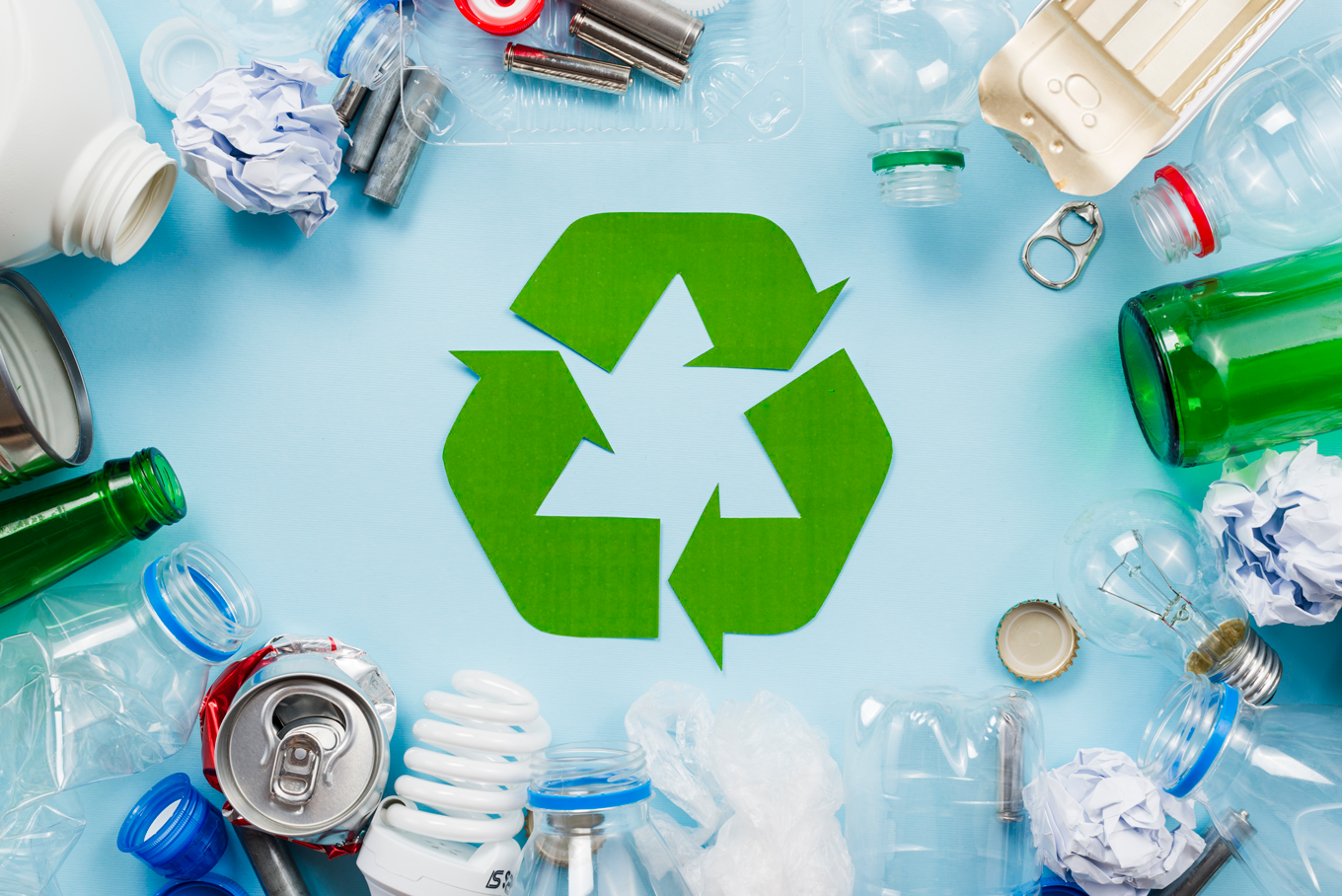In recent years, governments around the world have extended solid waste management efforts to support—and in some cases require—recycling and resource recovery efforts to divert more solid wastes from landfills, and to substitute reused materials or raw materials. Increasingly, specialized stewardship programs target particular types of hazardous wastes – used oils, spent batteries, etc. – the national advocacy group Product Stewardship Institute identifies more than 120 such programs spread among 34 US states (I introduced these efforts HERE). Maine already has a number of these programs.
Read MoreAudit, Compliance and Risk Blog
Maine enacts first US extended producer responsibility law for packaging
Posted by Jon Elliott on Wed, Sep 01, 2021
Tags: Environment, environmental law, Maine, Recyclable, Packaging
Proliferating product stewardship programs facilitate recycling
Posted by Jon Elliott on Wed, Aug 18, 2021
Solid waste management has come a long way since enactment of the Solid Waste Disposal Act (SWDA) of 1965 to address the national “landfill crisis.” The Environmental Protection Agency (EPA) applies SWDA authority to adopt landfill standards, which are administered by state and local governments. EPA also empowers these state and local governments to do more, not just through additional disposal standards, but through expanded requirements for recycling and resource recovery efforts designed to keep more solid wastes out of landfills. In addition, extended management programs impose “product stewardship” and “extended producer responsibility” on manufacturers. This note discusses these introduces these ideas, and summarizes the extent of state programs that apply them.
Read More
Tags: EPA, SWDA, Environment, environmental law, Recyclable, Stewardship Program
Within the US federal government, the Department of Justice (DOJ) enforces many civil and criminal laws directly, and also provides the attorneys who represent federal agencies in enforcement cases. For example, DOJ’s “US attorneys” represent the Environmental Protection Agency (EPA) in cases under the Clean Air Act, Clean Water Act, etc. In doing so, DOJ provides those attorneys with departmental policies to guide their activities – as a practical matter, DOJ policies supersede any conflicting client-agency policies. It’s therefore important, that since the Biden administration assumed office, Attorney General Garland and his deputies have moved aggressively to review and revise departmental policies inherited from the Trump administration. The remainder of this note discusses some of these changes.
Read MoreTags: EPA, DOJ, Environment, ENRD, Climate
A host of laws are designed to protect consumers from abusive business practices. These laws include longstanding protections against advertising that uses “false” or “misleading” advertising to induce consumers to buy products that do not perform as advertised, or that produce consequences different from those advertised. The basic U.S. federal law protecting consumers from false advertising is the Federal Trade Commission (FTC) Act, originally adopted in 1914; many states have enacted analogous provisions (in Canada, the Competition Act also provides analogous requirements). Organizations must meet these standards if they intend to make claims about their products or services, and should remember these provisions when reading materials prepared by others.
Read More
Tags: Environment, FTC, FTC Green Guides
On April 30, 2021, the US Environmental Protection Agency (EPA) proposed rules to phase down production and consumption of specified hydrochlorofluorocarbons (HFCs), consistent with directives included in the 2016 Kigali Amendment to the United Nations-sponsored Montreal Protocol on Substances that Deplete the Ozone Layer. These rules were authorized by the massive coronavirus relief bill (American Innovation and Manufacturing Act of 2020 (AIM Act)) enacted in December 2020, which included dozens of unrelated provisions within its 5,593 pages.
Read More
Tags: EPA, climate change, Environment, HFCs, Montreal Protocol, Ozone Layer, AIM Act, ODS
EPA Revises Multi-Sector General Permit For Industrial Stormwater Discharges
Posted by Jon Elliott on Wed, May 05, 2021
Effective March 1, 2021, the Environmental Protection Agency (EPA) has issued a revised “National Pollutant Discharge Elimination System (NPDES) Multi-Sector General Permit for Discharges from industrial Activities” (MSGP).” This new 2021 MSGP replaces EPA’s 2015 MSGP (which expired in 2020 but was continued by administrative fiat). Compliance begins May 30, 2021 for facilities that have been subject to the 2015 MSGP. Even though EPA's direct permit authority applies only in limited parts of the country, the new MSGP provides a reminder to organizations nationwide that stormwater management efforts need to be thorough and up-to-date.
Read More
Tags: EPA, Stormwater, clean water, NPDES, Environment, MSGP
Biden directs agencies to review all Trump administrative actions
Posted by Jon Elliott on Mon, Feb 22, 2021
President Biden is moving quickly to review and revise many of former President Trump’s administrative actions. As I discussed HERE, the fastest mechanisms for these reversals are executive orders (EOs) and slightly less formal executive memoranda from the President or his agency heads. One of the EOs signed on president Biden’s first day of office starts immediate action to review all Trump administrative actions. EO 13990 of January 20, 2021, “Protecting Public Health and the Environment and Restoring Science To Tackle the Climate Crisis”, applies to all federal agencies but focuses on President Trump’s environmental actions. The remainder of this note discusses this particular EO.
Read More
Tags: Environmental, climate change, Environment, Environmental Policy
How, and how fast, can Democrats make environmental policy changes they’ve promised?
Posted by Jon Elliott on Wed, Feb 17, 2021
President Biden and the Democratic majorities in Congress have announced sweeping plans to reverse most of the Trump Administration’s environmental policies. The timing and practicality of these reversals depends very much on each of the targeted policy’s legal status – laws, regulations, Executive Orders, or guidance documents. The remainder of this note comments on each of these sets of situations, highlighting examples of each. I’ll discuss them in order ranging from quickest/easiest to most time consuming/difficult.
Read More
Tags: Environmental, climate change, Environment, Environmental Policy
The Environmental Protection Agency (EPA) has completed a long review, and reaffirmed the primary National Ambient Air Quality Standards (NAAQS) for particulate matter (PM), including those for PM-10 (particulates with an aerodynamic diameter less than or equal to 10 microns) and PM-2.5 (less than or equal to 2.5 microns; also call “fines”). On December 4, EPA announced it would retain the PM standards set in 2013, despite comments presenting recent scientific evidence – including evidence that higher pollution levels exacerbate harm from COVID-19 -- and seeking tighter standards.
Read More
Tags: EPA, CAA, Environment, NAAQS
During President Trump’s term, the Environmental Protection Agency (EPA) has taken a number of steps to narrow benefit-cost analyses (BCAs), reversing expansive approaches used during the Obama Administration and thereby reducing the calculated benefits of environmental and health regulations. EPA announced what will probably be the last such step on December 4, by adopting a new Part 83 in Title 40 of the Code of Federal Regulations (CFR) entitled “Increasing Consistency and Transparency in Considering Benefits and Costs in Clean Air Act Rulemaking Process.” (I wrote about less formal guidance in a May 2019 memorandum from EPA Administrator Wheeler to his Assistant Administrators HERE.)
Read More
Tags: EPA, CAA, Environment, BCA










